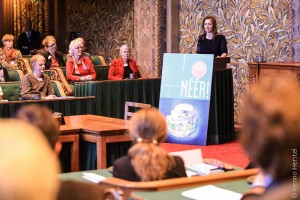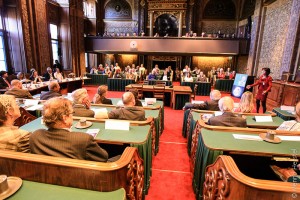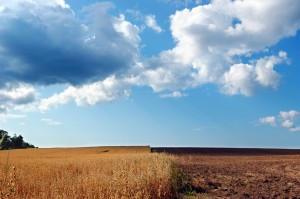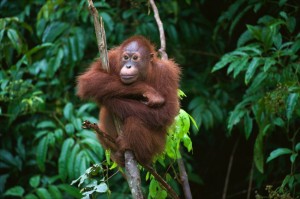Worldlog Semena 23 – 2013
Na semana passada apresentei so Senado a minha nova coleção cientifica intitulada Méér! Os cientistas que contribuíram para o novo pacote, nos deram uma série de análises que defendem os limites da Terra como um ponto de partida para nossas ações. Méér! é um guia para os políticos, os decisores políticos e cidadãos ajuda a fazer mudanças radicais em opções políticas sustentáveis.
Em Méér! Colecionei conhecimentos científicos que mostram um mapeamento neste momento crises e ajudam a resolver em conjunto. As contribuições vêm de cientistas independentes que estão preocupados com o futuro dos seres humanos, animais, natureza e meio ambiente e defendem soluções viáveis para as crises de vários ângulos.
Esta é a informação na contracapa:
Méér! tornou-se o tema central da nossa sociedade: mais de tudo e mais do que há. Nas últimas décadas a prosperidade sem precedentes tomou conta da crença de que o crescimento da nossa economia não é apenas sem limites, mas também um pré-requisito para a felicidade e prosperidade. Onde a economia foi um dia a ciência da produção e distribuição de bens e recursos escassos, agora se concentra quase exclusivamente em questões de dinheiro e monetária. A crise sistêmica que se apresentou em 2008 como uma crise bancária, agora se manifesta como crise monetária. E é claro que também temos a crise da biodiversidade, a crise climática, a crise mundial de alimentos e outros problemas que ameaçam a escassez de prosperidade e bem-estar para o núcleo.
Nós nos dedicamos esta semana à agricultura sustentável. Uma agricultura sustentável não deve ser prejudicada por novas demandas que a União Europeia no registro de variedades de plantas. Felizmente, a Câmara apoiou por unanimidade uma moção nossa!
A Comissão Europeia propôs que as regras relativas à produção e comércio de sementes sejam alterados. Estabelece requisitos rigorosos para as sementes que podem ser utilizados na agricultura. Todas as variedades de plantas serão registrados de acordo com esta proposta, e inscrição custa muito dinheiro. A proposta européia trouxe muita agitação entre agricultores urbanos, jardineiros e agricultores de vegetais orgânicos e criadores. Eles temiam que eles poderiam apenas utilizar sementes registradas e autorizados e que a troca de sementes não seria permitida.
Na proposta final ficou clara que os indivíduos pessoa física não cairiam nestas regras. Mesmo os pequenos criadores de sementes e variedades de sementes tradicionais não teriam de cumprir estas regras e todos os novos requisitos de registro Continuamos a achar que as exigências de registro previstas na proposta são muito rigorosas, e que eles podem formar um obstáculo a agricultura orgânica.
Por isso, apresentamos uma moção apelando ao governo para priorizar as negociações e proteger esses interesses sobre propostas da Comissão Europeia e os interesses dos pequenos negociantes e agricultura biológica.
Más notícias vindas da floresta tropical do Brasil. A pesquisa mostra que o desmatamento no Brasil leva ao encolhimento de sementes das árvores.
Assine aqui para evitar que 1,2 milhões de hectares de habitat do orangotango em Sumatra possa ser salvo. Esta área está em perigo imediato da indústria de óleo de palma.
Até a próxima semana, Marianne
Last week, I presented my new scientific volume titled More! to the Upper House. Scientists who contributed to the new volume, presented a range of analyses which urge us to base our acts on the borders of the earth. More! is a guideline for politicians, policymakers and civilians to make a radical change to other and sustainable policy choices.
In More! I have compiled scientific insights which analyse the current crises and help solve them in conjunction with each other. The contributions come from independent scientists who are concerned with the future of humans, animals, nature and the environment, and advocate practicable solutions for the crises from various angles.
This is the information on the back cover:
More! has become the key theme of our community: more of everything and more of what is available. During the past decade of unprecedented wealth, we started to believe that the growth of our economy is not only unlimited, but also a condition for happiness and wealth. Where economy was first the science of production and distribution of scarce goods and means, it is now almost exclusively about money and monetary issues. The system crisis that first presented itself in 2008 as a banking crisis, is now manifesting itself as a monetary crisis. And additionally, there clearly is a biodiversity crisis, a climate crisis, a world food crisis and other scarcity issues, which seriously threaten our welfare and wealth.
We made an effort for sustainable agriculture this week. Because sustainable agriculture should not be hindered by new regulations on the registration of plant varieties, set by the European Union. Fortunately, the Upper House unanimously seconded the motion!
The European Commission made a proposal to amend legislation on the production and marketing of seeds. It contains strict rules on seeds that are permitted to be used in agriculture. In accordance with the proposal all plant varieties must be registered, but registrations are expensive. The European proposal has caused a great deal of unrest among city farmers, vegetable gardeners, and among organic farmers and breeders. They feared that they would be permitted to only use registered seeds, and that the exchange of seeds would be disallowed.
The definitive proposal showed that the new legislation does not apply to private persons. Small seed breeders and traditional seed varieties would not have to comply with any new registration rules. We believe that the registration rules in the proposal are too strict, and could be an obstruction for organic farmers.
That is why the Party for the Animals called for a motion, requesting the government to prioritize the interests of small breeders and organic farmers in the negotiations about the European Commission’s proposal, and to protect their interests.
Bad news for the rainforest in Brazil. Research suggests that rainforest deforestation in Brazil leads to seed shrinkage.
Sign here to save 1.2 million acres of habitat of the orangutans on Sumatra. This area is endangered by the palm oil industry.
Until next week! Marianne



